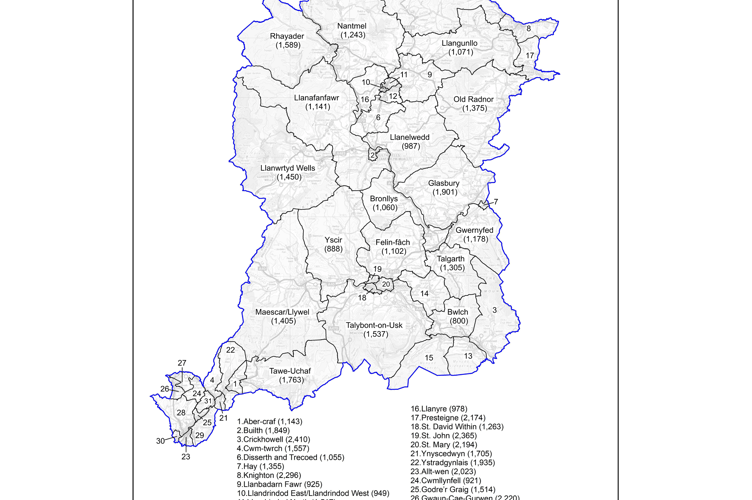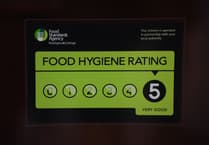The Boundary Commission for Wales has today published its revised proposals for the new map of Parliamentary constituencies which will come into force at the next ordinary general election.
As well as publishing its proposals, the commission has opened a four-week consultation period where the public can share their views on the proposed constituencies.
Under the rules, each constituency proposed by the Boundary Commission for Wales must contain between 69,724 and 77,062 electors.
The Revised Proposals see changes to the majority of constituencies initially proposed by the Commission in September 2021, and changes are proposed to every existing constituency.
Under the proposals the Brecon and Radnorshire constitiuency would become Brecon, Radnor and Cwm-tawe. Pontardawe in the Swansea Valley has been included as part of the proposed constituency.
The newly-published proposals were created following two separate consultations and five public hearings since the commission’s initial proposals were published.
Published alongside the revised proposals is the assistant commissioners’ report. The assistant commissioners were responsible for managing the commission’s public hearings and analysing representations received by the commission before reporting back to the commission with their own recommendations.
The commission says it considered several factors in developing its proposals, as well as the statutory range of electors.
Geography - such as lakes, rivers, and mountains - was an important consideration, as was current boundaries such as local authority and ward boundaries. The commission also considered local ties, such as shared history and culture as it developed its initial proposals.
The commission is now inviting comment on its proposals as it launches its final four-week consultation period. Members of the public are encouraged to send in their views, whether they support or oppose the proposals.
The commission has however stated that it has no power to set the number of MPs, which was decided by Parliament, and will not be able to consider arguments around the number of constituencies in Wales.
An online consultation portal at bcw-reviews.org.uk features the proposals in full, and members of the public can submit their views directly through the portal.
People can also take part in the consultation by emailing [email protected] or writing to The Commission in the post at Boundary Commission for Wales, Hastings House, Cardiff, CF24 0BL.
Writing in the foreword to the report, deputy chair of the commission Mrs Justice Jefford DBE said:
“The commission received 1,367 written and 81 oral representations on the initial proposals. Public hearings were held across Wales to enable members of the public to express their views on the initial proposals and to suggest how they could be amended and improved.
“The commission is extremely grateful to all those who took the time to contribute. As a result, the commission has revised the initial proposals. It has proposed changes, often significant changes, to 22 of the 32 proposed constituencies.
“It has also proposed different names for 9 of the constituencies. There is now an opportunity to make representations on these revised proposals before the Commission makes its final report on proposed Parliamentary constituencies in Wales.”
Secretary to the Boundary Commission for Wales, Shereen Williams MBE OStJ added: “I’m delighted to be publishing these proposals today.
“When the Commission published the Initial Proposals in September 2021, we asked for the public’s help in strengthening the new map of Welsh constituencies. Thanks to the record number of responses we’ve received, we have made changes, in some cases significant changes, to those initial proposals.
“There is now one more opportunity to affect the new map of Welsh constituencies, during our final 4-week consultation period. I would urge everyone, regardless of your views on the proposals, to let the Commission know.”
The third consultation period opens on October 19 2022 and closes on November 15 2022.
Following the consultation period, the commission will assess the representations received and submit its final recommendations to Parliament in July 2023.
The final recommendations will come into effect automatically at the next scheduled general election.




